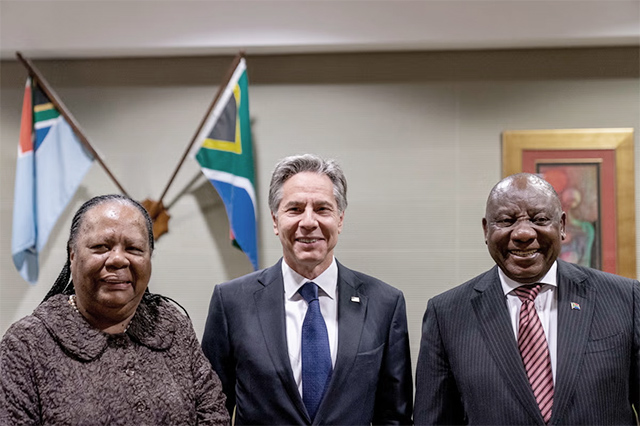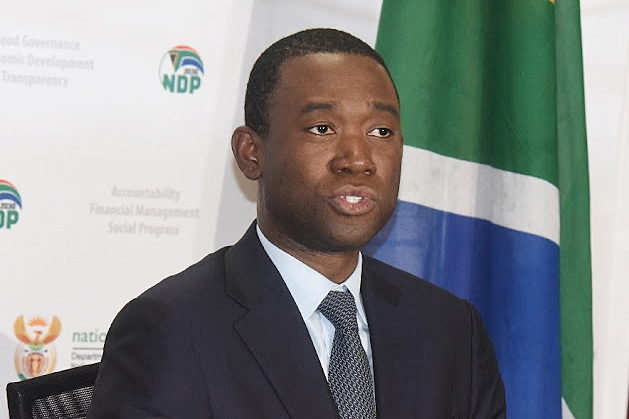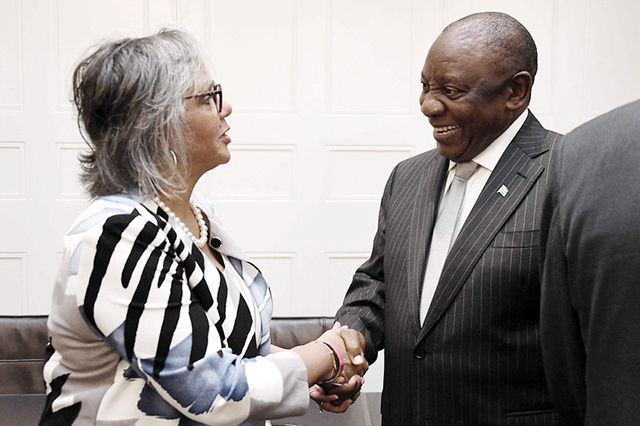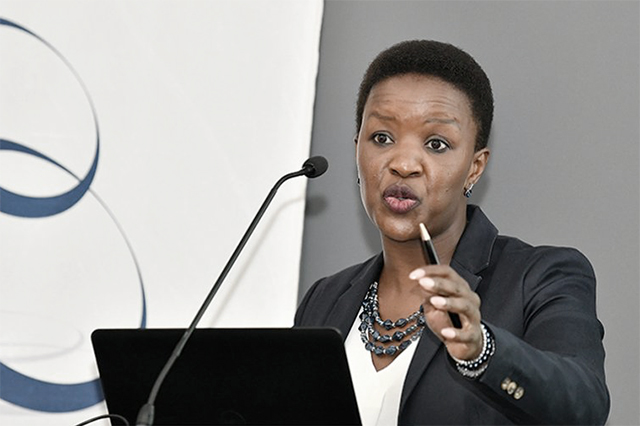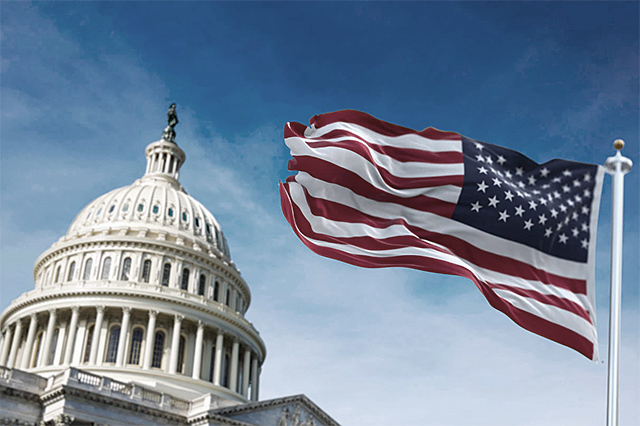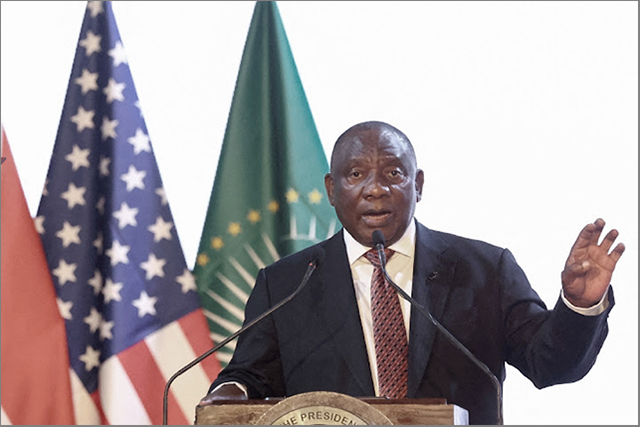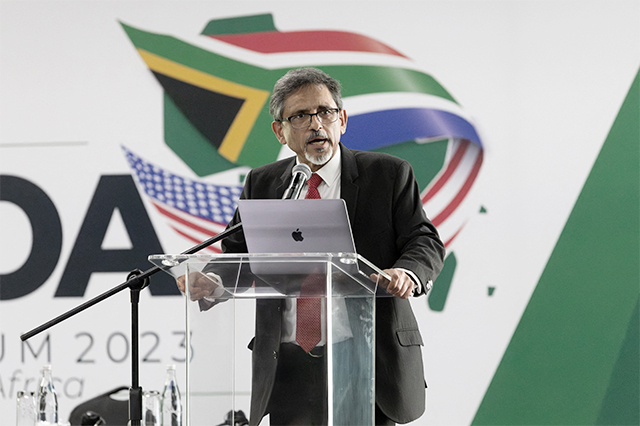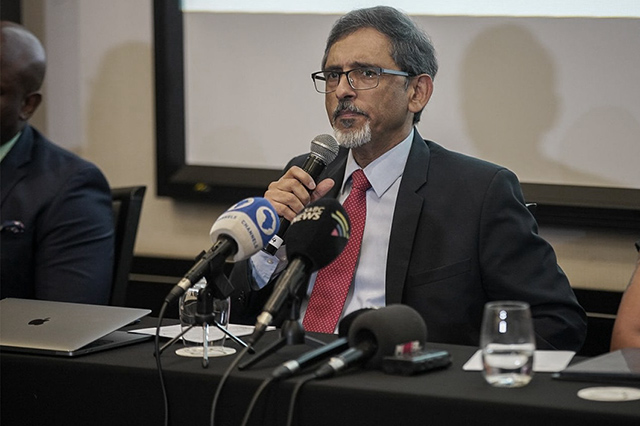Analysis: Playing chicken on the AGOA speedway
South Africa was eventually included in the newest version of AGOA – the African Growth and Opportunity Act – but with an important proviso. This was the requirement that there was progress in sorting out access to South African markets by American poultry, pork and beef exporters. But the negotiations on these questions seem to have come to a stumbling block and the US invoked a provision of AGOA to restrict South African exports of agricultural products to the US in two months unless things are sorted out. J. Brooks Spector takes a look yet again at AGOA issues.
A few months back, the United States Congress - after some soul-searching about giving Barack Obama any kind of victory in trade legislation - passed a new version of the African Growth and Opportunity Act, AGOA. Two earlier articles by the author published in Daily Maverick (Links here and here) had, earlier, chronicled the challenges to AGOA’s passage, as well as the opportunities that would come available as long as the AGOA trade window remained open for business for South Africa. The original legislation had become law 15 years earlier, and, this time around, there had been some real concerns South Africa might well be written out of this opportunity.
Actual congressional action on AGOA was initially threatened by debate over fast-track authority for the President to negotiate the TransPacific Partnership trade pact, a major trade pact between 12 nations bordering on the Pacific Ocean. Eventually, South Africa’s continued participation had come under question, initially over whether it should still be eligible, given its status as a middle-income nation, and then as the question of tariff and non-tariff barriers for the export of certain US products, such as poultry, became issues for several senators from big poultry producing states. In the end, South Africa was determined to be eligible for AGOA privileges, but with the additional proviso that there would be what was called an “out of cycle” examination of South Africa’s trade policies, and any unwarranted restrictions on access for American products, rather than simply the more usual annual evaluations of eligible nations. AGOA has become an important part of America’s development strategy, with the understanding that trade, not aid, is the real path to economic growth in developing nations, and that economic growth is key to the nurturing of political stability and democratic values in such countries.
Participation under AGOA is not chicken feed for South Africa’s economy. Since the inception of AGOA, South African companies have had duty-free access for thousands of product lines to the US, and this access has helped generate thousands of jobs. The generally accepted job-creation figures are: 85,000 jobs in the citrus industry; 35,000 direct, and 55,000 indirect jobs in the automotive sector, and 10,000 more jobs in other sectors. These sectors have all benefitted from this duty-free window. By now, by virtue of AGOA and other trade preference programs, over 98% of all South African exports are able to enter the US duty free.
The best estimates are that in 2014, over $1.7 billion worth of exports (nearly R24 billion at today’s rates) entered the US under AGOA’s provisions. These included $1.3 billion worth of cars made by companies like BMW, along with $40 million dollars’ worth of South Africa’s wine. Overall, Americans bought $250 million worth of South Africa agricultural products last year. Since the first opening of the AGOA window, South African auto exports have grown from virtually nothing in 2000, to around $2 billion per year. Similarly, in citrus exports, AGOA’s duty free access has allowed South Africa to compete against Mexico in the American market, and establish an important base in the immense US market for such products.
In this regard, the US Embassy in Pretoria recently noted: “The US believes the South African agriculture sector can benefit even more in the future. In 2014, the US imported $55 million in fruits and vegetables, $51 million in wine and beer, and $48 million in tree nuts such as macadamias all duty free under AGOA. The US has identified $175 million in potential new agricultural exports from South Africa to the United States for citrus, avocados, lamb, and other products.”
Given complaints from the US poultry, beef and pork producers that US exports into South Africa were being subjected to tariffs higher than those applied to other importers; tariffs on US chickens were higher than those from Europe, and the quotas much lower. Exports were, also, artificially restricted by non-tariff barriers disguised as phyto-sanitary protections; such as claims that would-be imports were contaminated by parasites or viral infections. Negotiations designed to resolve these questions have been taking place between the two nations. However, after months of these discussions, it had become clear that no final resolution to the dispute was in view, thereby missing a 15 October deadline to reach a successful conclusion to these discussions.
Instead, there are now rumours that a significant part of the delay came about because of the failure of the South African government to communicate effectively and efficiently with its own veterinarian consultants, even though the government knew the clock on this matter was running. The result has been a deadlock that brought about a shock to the system.
Or, as Reuters reported over the weekend, “South Africa has banned US poultry imports since last December, after an outbreak of bird flu. The measure came on top of 15 years of punitive import duties on some US chicken products. The country missed an October 15 deadline to agree on new animal health and food safety rules, which also affect US beef and pork exports, prompting the United States to warn that its eligibility for the African Growth and Opportunity Act (AGOA) trade program was at risk. Eliminating barriers to US trade and investment is one of the criteria for membership of AGOA, which was renewed earlier this year and provides duty-free access to goods from sub-Saharan African countries, ranging from crude oil to clothing. ‘We do not take this decision lightly, and, in fact, have been working hard over many months - indeed years - to help South Africa avoid such action. Unfortunately, the issues persist,’ [US Trade Representative Michael] Froman said in a statement.”
This, then, was what led up to the announcement late last week from the Obama administration in the form of a letter to the Speaker of the House of Representatives, and the President, pro tempore of the Senate that read:
“In accordance with sections 506A(d)(4)(C) and 506A(c) of the African Growth and Opportunity Act (AGOA), I am providing 60-day advance notification of my intent to suspend the application of duty-free treatment to all AGOA-eligible goods in the agricultural sector for the Republic of South Africa 60 days after the date of this notification.
“I am taking this step because South Africa continues to impose several longstanding barriers to US trade, including barriers affecting certain US agricultural exports, and thus I have determined that South Africa is not making continual progress toward the elimination of barriers to United States trade and investment as required by section 104 of AGOA.
“I have determined that such suspension of benefits would be more effective in promoting compliance by South Africa with the eligibility requirements listed in section 104 of AGOA than the termination of South Africa's designation as a beneficiary sub-Saharan African country, as it would better promote continuing efforts between the United States and South Africa to resolve these outstanding issues. Although South Africa has to date failed to meet critical benchmarks required to address these issues, it continues to express an interest in resolving U.S. concerns.
“I will continue to assess whether South Africa is making continual progress toward the elimination of barriers to United States trade and investment in accordance with AGOA eligibility requirements, as well as whether this suspension of benefits is effective in promoting compliance with those requirements.”
Meanwhile, and not surprisingly, Mike Brown, the US’ National Chicken Council President, endorsing a tough love approach, argued it made no sense for the US to give special preferences to countries that treated it unfairly. “This should send a clear message to South Africa, and their poultry industry that they will not be given a 'Get out of jail free' card every time AGOA rounds the turn,” he had told the media.
That has not, however, kept some elements of South African public opinion from riding off towards a type of nativist chauvinism. Western Cape COSATU leader, Tony Ehrenreich, for example, was reported in the media over the weekend to have said that, with this announcement by the US, in response, it was time to re-evaluate US-South African relations. And some callers to talk radio stations (listening to this conversational flow is something of an addiction on the part of this writer) have begun to charge the real reasons for this move on the part of the US (to inform South Africa that unilaterally granted export trade privilege is under threat) was really the equivalent of some big power bullying to clear the market for the dumping of inferior US products no one else would buy.
Such callers insisted, darkly, that they knew that the whole thing was that now that US poultry exports were locked out of Vladimir Putin’s Russia, for retaliatory political reasons over the American response to Russia’s actions in Ukraine, the Americans were desperate to find some place to dump their obviously inferior poultry instead. QED. And speaking of really shadowy motives, was it possible to speculate South African negotiators might even be dragging their feet on this front, in order to demonstrate in some way that trade with America was now simply less important to the South African government than trade with China, especially given the upcoming multinational forum between Africa and China? Naw, that just seems too, too farfetched, now, doesn’t it?
Of course, the unilateral nature of AGOA remains a confusing thing for many, and something less than clearly explained to the general public. In a story about the dispute, even the Associated Press managed to call AGOA a bilateral trade agreement between America and South Africa, rather than what it really was. This distinction – and thus the reason why the US government could move on agricultural exports – seems less than clear to most South Africans.
Putting the best possible fact on the snarl, South Africa’s Minister for Trade and Industry, Rob Davies, was now insisting the sides were actually “tantalisingly close” to reaching agreement on the outstanding issues between the two nations. And US senior trade official, Froman, said that if the two reached agreement, restrictions on tariff-free access to the US, for South African agricultural products, now planned to come into effect in sixty days’ time, would not come into being. Froman explained that South Africa could still avoid the suspension, a decision that could quickly cost it up to $7 million in lost benefits - if South Africa finally met the benchmarks to eliminate those non-tariff barriers to imports of American poultry, pork, and beef.
Sounding the tocsin of alarm over this danger of losing these export markets, Westgro, the Western Cape’s economic development agency, was calling for quick, decisive action to protect Western Cape agricultural exports that enter the US under AGOA provisions. As Westgro said last week, “More than R780m worth of Western Cape annual exports are at risk if the United States goes ahead with its plan to suspend trade benefits on agricultural goods from South Africa under the African Growth and Opportunity Act (AGOA).
“Today Wesgro will ask for an urgent meeting with the Minister of Trade and Industry, and the Minister of Agriculture, Forestry and Fisheries, to ensure that Western Cape farmers and producers do not lose their duty preference’ said Wesgro CEO, Tim Harris. The trade benefits under AGOA are especially important to the wine, citrus fruit, fruit juice and dried fruit sectors, who, together, export more than R780m annually to the US under AGOA. ‘I will be asking representatives from these sectors to join me in the meetings to make the case for protecting the jobs in the sector,’ said Harris. The citrus sector in the Western Cape alone employs around 6000 people, 4000 employed in sector-related jobs.
‘We have to find a resolution to this dispute because the United States is a key growth market for local agricultural products,’ Harris explained. The Western Cape’s exports to the United States under AGOA increased by an annual average growth rate of 16% between 2001 and 2014. The Western Cape, in particular, has been a significant beneficiary of AGOA’s preferential trade agreement, and without it our citrus and wine industry will struggle to compete against the likes of Argentina, Chile and Peru who benefit from preferential trade agreements.”
The clock is now ticking and this deadline will be reached at the end of 2015. As a result, this problem now calls for some seriously concentrated effort to sort this mess out, before this now-modest bit of huffing and puffing turns into a real trade expansion debacle. If it does escalate there would be very real, profoundly dispiriting consequences for a country that desperately needs to protect every job it still has. South Africa would do well to keep every bit of market access in a massive economy like that of the US. While maximal access to South African markets will probably never be a critical economic outcome for the US, the same cannot be said for South Africa’s access to American markets. Accordingly, it would seem imperative that South Africa sort things out with the US, before real job and export loses occur.



